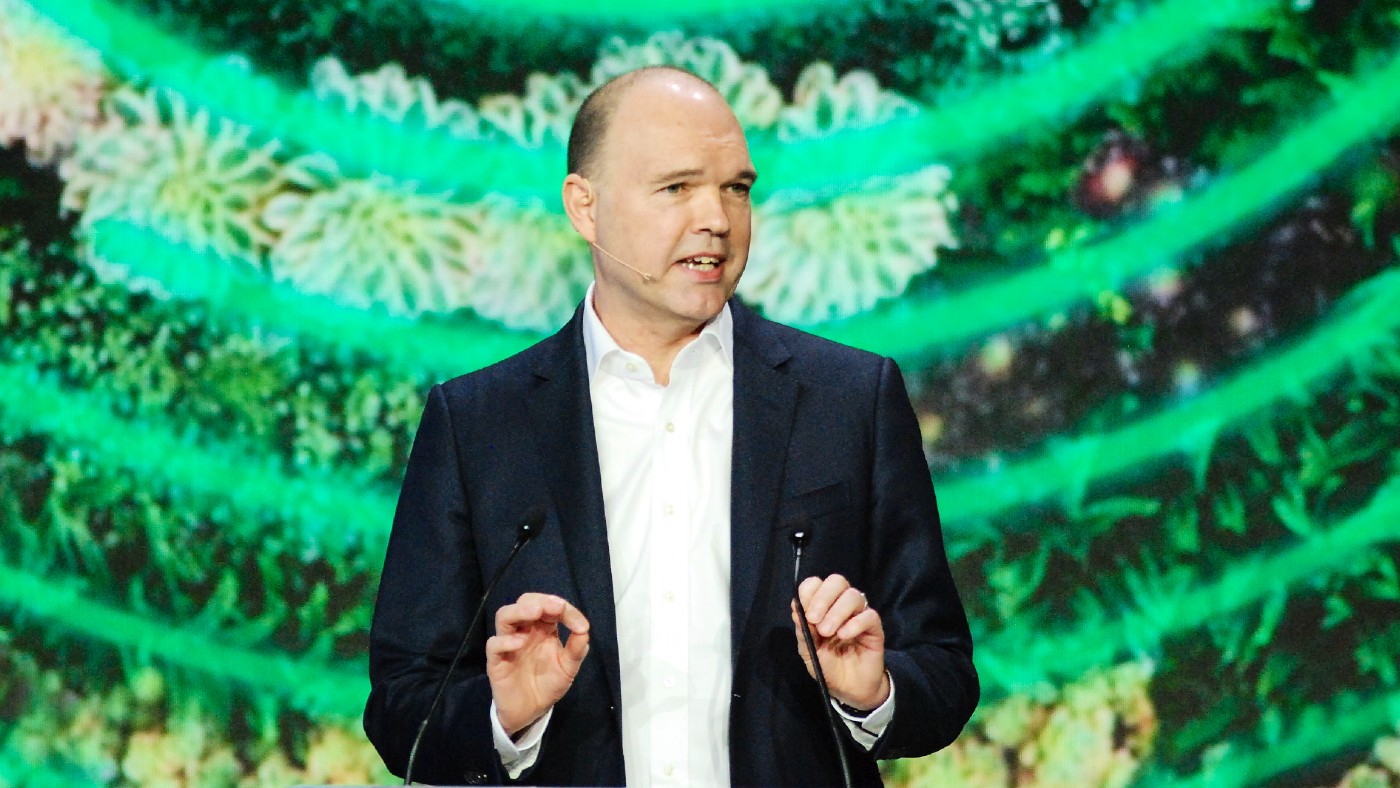Vodafone: a great British corporate decline
CEO Nick Read has been given the boot after shares tumbled 40% to their lowest price this century

A free daily email with the biggest news stories of the day – and the best features from TheWeek.com
You are now subscribed
Your newsletter sign-up was successful
“The number is up” for Vodafone CEO Nick Read, who has been unceremoniously ditched after presiding over a truly “shocking” crash of confidence and value, said Nils Pratley in The Guardian.
On his four-year watch, shares in the former telecoms champion have tumbled 40% to their lowest price this century, prompting fresh debate over whether the debt-laden company can afford its dividend. The feeling in the City is that survival now depends on appointing a radical, “free-thinking” new boss.
Once “a trailblazing innovator, bursting with ambition and confidence”, Voda has declined into “a bloated reflection of European bureaucratic decay, trapped by regulation and unable to conceive of an escape”, said Christopher Williams in The Daily Telegraph. Read isn’t wholly to blame for “one of the great British corporate declines”.
The Week
Escape your echo chamber. Get the facts behind the news, plus analysis from multiple perspectives.

Sign up for The Week's Free Newsletters
From our morning news briefing to a weekly Good News Newsletter, get the best of The Week delivered directly to your inbox.
From our morning news briefing to a weekly Good News Newsletter, get the best of The Week delivered directly to your inbox.
Still, chairman Jean-François van Boxmeer must have hoped his ejection “would have generated a bit more excitement in the City”. After spiking briefly, shares ended the day flat. “Alas, Vodafone has delivered so many disappointments over the years, its followers have mostly drifted away.” With the exception of French billionaire Xavier Niel, who retains a 2.5% stake, even activist investors have long since rung off.
“Hanging up on a chief executive is always a big call,” said Alistair Osborne in The Times. But will turfing out Read help? Analysts aren’t convinced: it’s not clear what a new CEO might do differently, except “risk a fire sale of assets”.
Read had already begun selling off parts of the sprawling conglomerate, said Pierre Briançon on Reuters Breakingviews. In theory, his exit could “open the door to bolder action”: streamlining unprofitable ops stretching from Australia to Turkey. The opportunity’s there, but no-one’s banking on a “quick turnaround”.
A free daily email with the biggest news stories of the day – and the best features from TheWeek.com